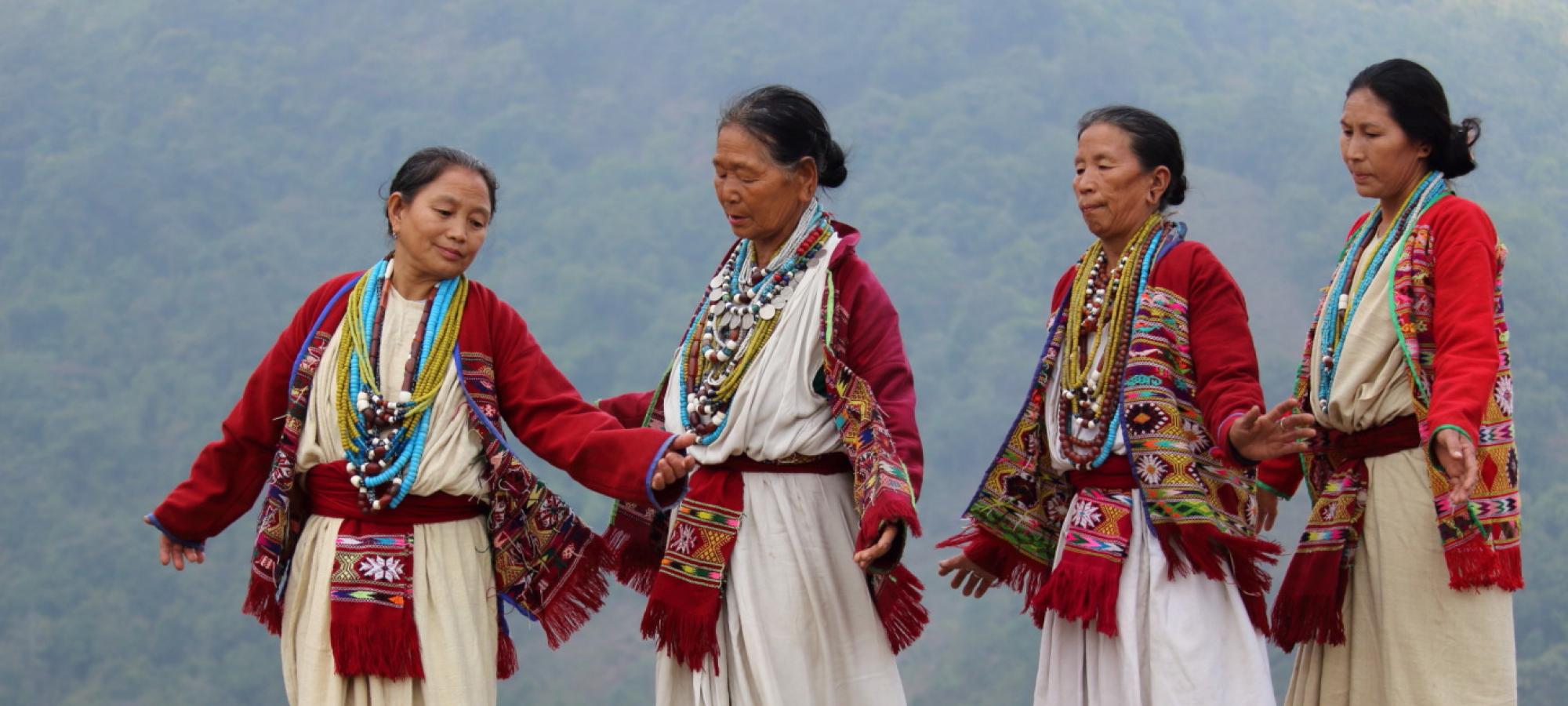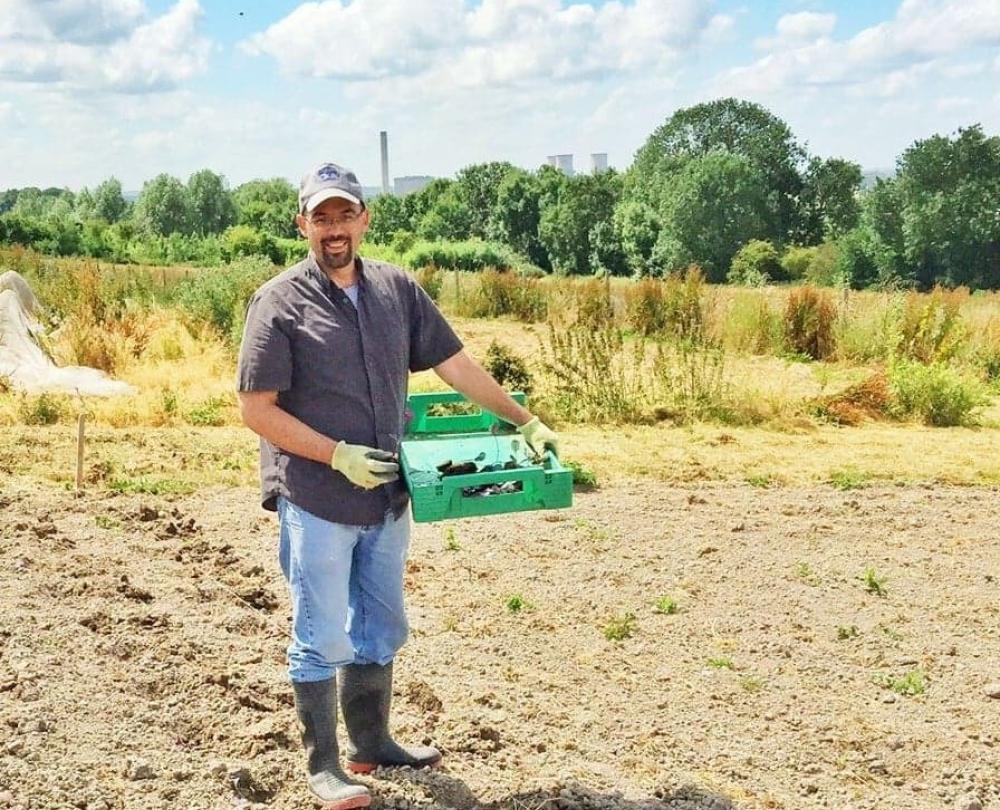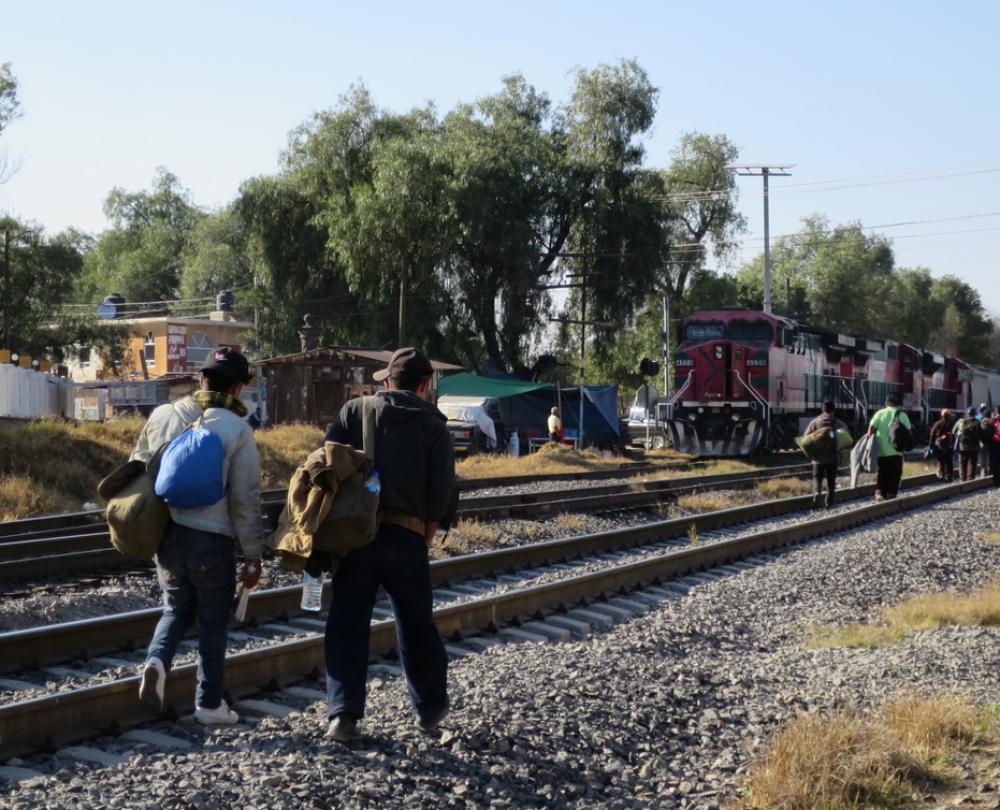Walking with the excluded and speaking their language
A foundational grace
The desire to learn, promote and empower languages is a foundational grace that the Society of Jesus has enjoyed from its very inception. Throughout the Society’s history, Jesuits have committed innumerable languages to writing and helped them to survive and grow. Indeed, such initiatives were acts of worship inspired by the Spiritual Exercises: a recognition of God who is at work in all people, their languages and cultures. Inspired by Ignatius’s own advice to learn and speak local languages wherever they went, the early Jesuits understood that languages are great treasures, complex and rich systems of human knowledge, and that preserving and nurturing them was key to understanding people’s hearts and worldviews.
Vijay D’Souza, SJ, has spent over twenty years working on the Hrusso Aka language of Arunachal Pradesh, India. Arunachal Pradesh, the frontier state of India, is home to approximately a hundred small indigenous tribes and, with ninety languages, is one of the most linguistically and culturally diverse states in India. The Hrusso Aka tribe has a population of seven thousand, spread across twenty-eight small villages and two towns in the West Kameng district of the state.
The Jesuit mission among the Hrusso Akas started in 1998, when the people of Palizi village invited the Jesuits to open a school there. Inspired by the Jesuit linguistic tradition, the three pioneers of the mission took an immediate keen interest in the language, much to the surprise of the villagers. Vijay arrived there as a scholastic in April 1999, tasked with learning Aka before his ordination, an endeavour which proved challenging. Firstly, Hrusso Aka was unscripted, and so Vijay was compelled to find ways to learn it without the usual linguistic tools – grammar, dictionary, or other forms of printed materials. Secondly—and somewhat surprisingly—there was widespread pessimism about the future of the language among the native speakers themselves.
Vijay’s desire to learn the language was initially met with antagonism, suspicion, and apathy. To many, he was trying to learn and resuscitate a language without a future – a futile endeavour by an outsider. This attitude, however, gradually gave way to one of appreciation.
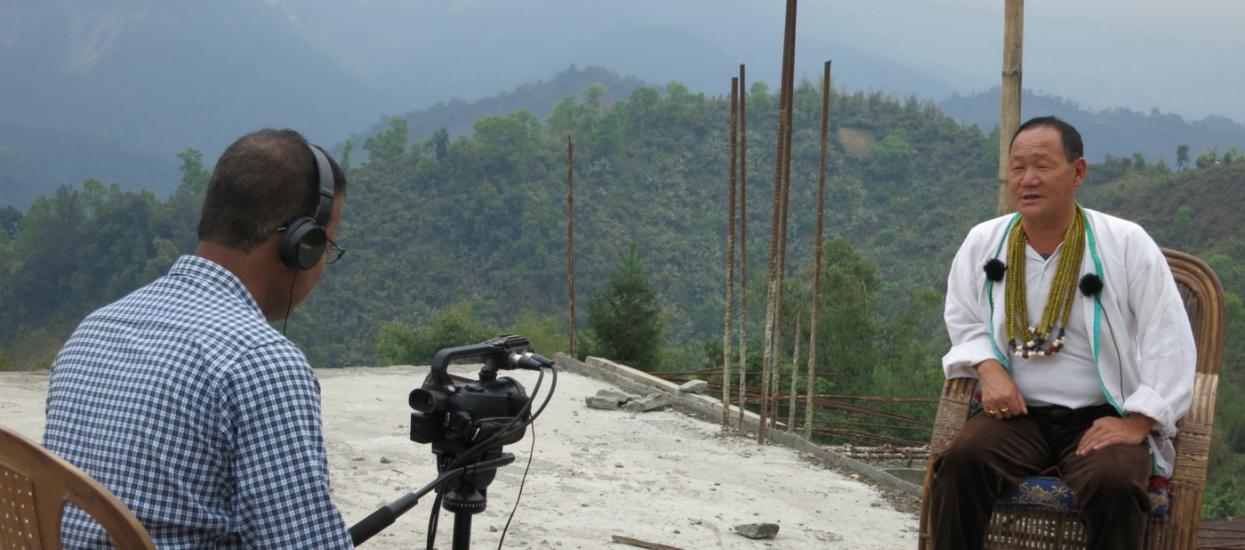
A language that couldn't be written
The Palizi Jesuits quickly recognised the urgency of finding a way to write Hrusso Aka, a privileged task which eventually fell to Vijay, who was soon entrusted with preparing the first printed book in Aka: a collection of prayers for children, published in June 1999. Aka mythology recounts how the primeval ancestor, Busulu Awu, gave them their alphabet on a piece of buffalo skin which they roasted and ate since they were hungry. They therefore believed that this was why their neighbours had scripts but they did not. There was thus great excitement when the first book was published. Catechists and other villagers readily volunteered to spend days, weeks and months narrating stories, writing songs and translating prayers. A foundation was laid for a collaborative teamwork and, from then on, there was no looking back.
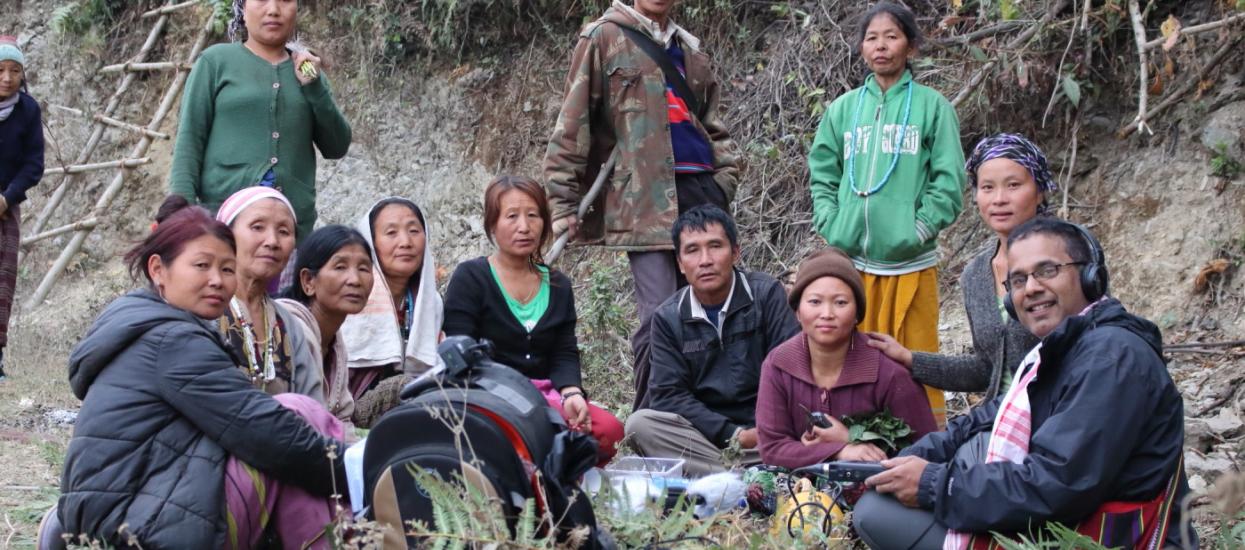
Small beginnings
Vijay and his collaborators regularly produced elementary literature. The first school textbook in 2005 was an instant success, and so was a collection of prayers and two hundred hymns, Nugu Dziiwsa (Beautiful Songs, 2012). This has been the most important work so far in terms of its reach and impact and is used extensively in churches across the Hrusso Aka area. In 2018, a children’s storybook and, the following year, the first alphabet chart were published, both with coloured illustrations by local artists. Such initiatives resulted in the Hrusso Aka apex council formally recognising both the new orthography as the tribe’s official alphabet in 2017 and the team as the official ‘Hrusso Literature Team’, entrusting them with language and literature development. The team that had its humble beginnings with only two members—Apang Rumo, the first catechist of the Palizi Catholic church, and Vijay—has now grown to fifteen well-trained, enthusiastic members, consisting of village elders, students, housewives and professionals, from twenty to seventy years of age.
The immediate priority was to create the basic literature, poetry, and to translate the Bible, which they hope to achieve in the next five years. In order to encourage language use among young people, the team has released a mobile ‘talking dictionary’ android app, a language-promotion website, a mobile keyboard, and an AI-supported mobile keyboard for predictive texting in collaboration with Microsoft’s Swiftkey. An important milestone for Hrusso Aka was when D’Souza was awarded the Endangered Languages Documentation Programme (ELDP) scholarship in 2015, which enabled him to document a hundred hours of Hrusso Aka as it is spoken today. The digital recordings resulting from this project are being annotated and will be archived at the School of Oriental and African Studies, London, as a permanent record of the language and an important resource for future generations.
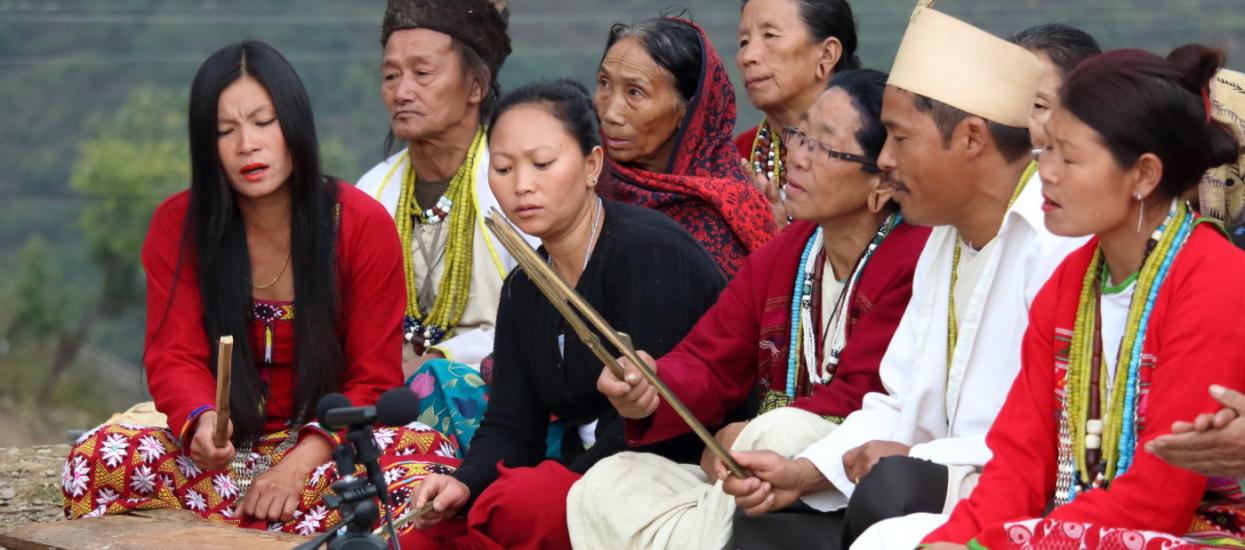
Signs of hope
Since Vijay’s return to India from Campion Hall in September 2020, he has been missioned to start and run an indigenous language institute in Guwahati, Assam. The new institute, tentatively named 'Institute for Endangered Languages and Cultures', will document, support, and promote indigenous languages of the region. The Institute's first-ever publication in February 2021 was a small, 26-page booklet of a Hrusso Aka translation of the rules and regulations pertaining to women's self-help groups. These groups, known in India as SHGs, play a crucial role in women's empowerment by giving them financial control and freedom from unscrupulous moneylenders. The booklet aims to make the process of forming and running SHGs accessible to every Hrusso Aka woman in her own language.
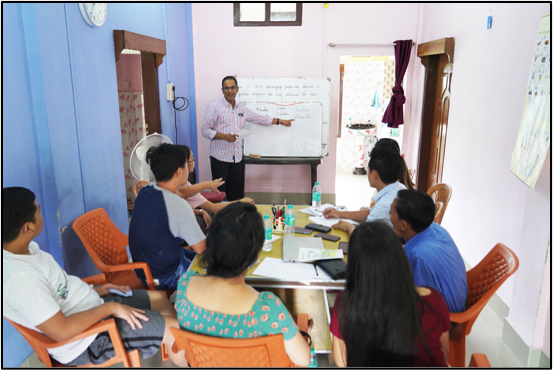
The ‘Hrusso Literature Team’, formed in 2017 and led by Vijay, culminated in the official launch of the 'Hrusso Language Academy' in July 2021. Once approved by the Aka Shotuko Kunu (the apex council), the academy will be responsible for language-related works such as language documentation and advocacy, pedagogy and curriculum, and teacher training and certification.
Language endangerment: The Jesuit response
More than 80 percent of the world’s indigenous languages are endangered today. It is projected that, by the turn of this century, half of them will disappear. In the Society’s early years, it faced a similar issue. Colonial conquerors thought that the ‘primitive’ languages of those they conquered needed to be replaced by ‘developed’ languages such as Spanish, French, Portuguese, and English. The Society withstood efforts to suppress local languages by colonial powers and resolutely battled on behalf of indigenous languages. In many places, Jesuits offered a creative alternative to monolingual imposition, by devising multilingual models of education. In the indigenous missions, languages like Spanish, French, and English were taught, but often on equal footing with native languages. Such models are the need of the hour, especially in India where indigenous languages are being harmed or killed off by the ruthless imposition of dominant languages.
Language extinction is a tragic loss of a community’s collective roots. The Jesuit tradition recognises this and calls us to affirm and nurture languages no matter how small they are. In fact, it is the smallest languages and their speakers that are being edged out, excluded, and annihilated in the race for ‘development’. The Universal Apostolic Preferences call us to walk with the excluded. Affirming and ensuring the survival of people’s languages and cultures is an essential part of this mission.


